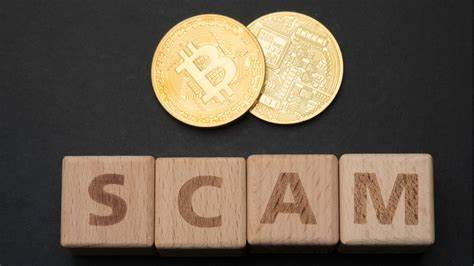
Cryptocurrencies are increasingly popular all over the Middle East. The United Arab Emirates, Saudi Arabia, Bahrain, and Qatar are embracing digital innovation, and all of them are anxiously looking toward the prospects that crypto has to offer whether it is investment, trade, or personal finance.
But with all grand opportunity comes some risk. One of the largest risks in the cryptocurrency world is scams. Sadly, there have been quite a large number of people who have been victimized by cunning scammers who take advantage of unfamiliarity and the quick pace of the business.
If you are living in the Middle East and you want to enjoy cryptocurrency without any risk, then you should know how to remain safe. In this guide here, we are going to teach you how to remain safe from general crypto scams so that you can enjoy the world of cryptocurrency without any risk.
Table of Contents
Understanding Why Scams Happen
Prior to moving on to the actual scams, there are a few reasons why scams are prevalent in crypto:
- Newness: Crypto is far new compared to the traditional finance sector.
- Lack of regulation: Although most Middle Eastern nations are implementing crypto laws, all companies are not registered properly.
- Anonymity: Certain cryptos permit individuals to be anonymous, and that facilitates scammers more easily.
- Hype and fear of missing out (FOMO): Scammers employ excitement and fear to get individuals into making hasty choices.
Now that you know why scams persist, you can start cultivating the right mindset: always skeptical, never rushed.
1. Recognize the Most Common Crypto Scams
Some scams that have particularly been rampant in the Middle East include:
a) Fake Investment Sites
These websites promise returns on crypto investments. They look extremely professional, with genuine-looking sites and fake testimonials. But when you send your money along, it disappears and nothing real is taking place behind the scenes.
Warning signs to watch out for:
- Promises of extremely high returns (e.g. “Double your money in 30 days!”)
- Pressure to act immediately
- No true company registration or licensing
b) Phishing Attacks
Phishing is when attackers send false emails, messages, or links that pretend to be legitimate companies (such as crypto exchanges or wallets). If you click these links, you might unknowingly give away your login details.
Be careful of:
- Emails or texts with intimidating messages like “Your account is suspended!”
- Links that look a bit different (such as binancee.com rather than binance.com)
- Password or private key requests
Read Also: Emotional Control Is the Most Underrated Skill in Trading
c) Pump-and-Dump Schemes
Here, a group of people artificially inflate the price of a small cryptocurrency. They promote it on social media, making others invest. Once the price increases, the scammers sell their holdings, and the price crashes, leaving others in the red.
Red flags to watch out for:
- Unusual hype over unknown coins
- Messages instructing you to “buy now before it’s too late”
- No real-world practical use for the coin
d) Romance Scams
Romance scams will start out innocently as a social media message. They take the time to get to know you for weeks or months and then start suggesting crypto investments or asking for money.
Red flags to watch out for:
- Someone you don’t know asks you to invest or send crypto
- Emotional manipulation like “If you trust me, you’ll do it”
- Reasons for not meeting in person
e) Fake Giveaways
You might see posts saying you can win free cryptocurrency if you send a little in advance. These “giveaways” are almost always a scam.
Red flags to look out for:
- “Send 0.1 BTC and receive 1 BTC back!”
- Celeb names or fake endorsements
- Vanity promises for minimal or no effort
2. How to Protect Yourself Step-by-Step
Taking a few smart steps can greatly reduce your chances of being scammed:
a) Use Trusted Platforms Only
When buying, selling, or trading crypto, stick to well-known, licensed platforms that operate legally within the Middle East. Examples include some platforms registered under Dubai’s Virtual Assets Regulatory Authority (VARA) or Bahrain’s Central Bank.
Tip: Always check if the platform has an official license.
b) Always Double-Check URLs
Before logging into a crypto exchange, double-check the website URL. Bookmark the correct website to avoid fake ones. Never click on links in emails unless you are 100% sure they are legitimate.
Tip: Secure sites begin with “https://” and often have a small padlock icon.
c) Enable Two-Factor Authentication (2FA)
Adding 2FA to your cryptocurrency accounts adds an additional layer of protection. Even if someone steals your password, they still can’t log in without your second verification.
Tip: Use a specific authentication app rather than SMS, since phone numbers can be hijacked.
d) Never Share Private Keys
Your private key or recovery phrase is the most precious information in crypto. Whoever possesses it can access your funds. Never give this to anyone not even someone claiming to be with a customer support agency.
Tip: Write down your keys on paper and store them securely, offline.
e) Take Your Time
Real investments don’t pressure you. Scammers often create a false sense of urgency, so you’ll make emotional decisions. Always pause and think carefully before sending any money.
Tip: If something feels rushed or too good to be true, it usually is.
3. Building a Resilient Mindset
Protecting yourself isn’t just identifying cons it’s also building a mentality that allows you to make good decisions on a day-to-day basis.
Here’s how to enhance your plan:
- Stay informed regularly: Crypto is constantly changing. Stay informed of progress from reputable sources like official regulatory bodies or reliable financial news.
- Be patient: Long-term thinking protects you from emotional decisions.
- Seek counsel: If you’re unsure of an opportunity, talk to someone you know and trust. Having a second opinion may save you from making a mistake.
- Stay humble: No matter how experienced you become, always think that you can be deceived if you’re not intelligent.
The greatest shield that you possess is knowledge with humility.
4. Government and Legal Support in the Middle East
The majority of Middle Eastern nations are actively ensuring the protection of crypto users. Here’s the positive rundown:
- United Arab Emirates: Dubai has set up VARA (Virtual Assets Regulatory Authority) to oversee crypto operations.
- Saudi Arabia: The Saudi Central Bank (SAMA) closely monitors fintech activities.
- Bahrain: The Central Bank of Bahrain provided detailed licensing guidelines for crypto companies.
- Qatar: The Qatar Financial Centre bans unlicensed crypto activities.
Understanding that governments are moving forward to regulate the market should be reassuring but keep in mind, you still have to protect yourself as an individual.
5. What to Do If You Get Scammed
If you find that you have been defrauded, don’t panic. Act fast:
- Report it: Report your local police or regulatory agency. Some countries have a cybercrime unit for financial fraud.
- Inform the platform: If it happened on a crypto exchange, inform them immediately.
- Warn others: Sharing your experience can warn others off the same blunder.
- Learn and rebuild: It pains to lose money, but what you can gain from it can make you so much stronger and wiser in the future.
Final Thoughts
Cryptocurrency is an exciting frontier that offers amazing opportunities to those who approach it with prudence and wisdom. There are scams, sure, but you can protect yourself with patience, learning, and sensible practices.
The Middle East is rapidly building a secure, safe environment for digital riches. Being aware and vigilant, you can be part of this bright future without becoming the victim of pitfalls that tragically catch so many others.
Every step you take toward becoming more knowledgeable and more cautious is an investment not just in your money, but in your overall sense of competence and growth.
Be strong, be smart, and never forget: you can travel through this space successfully and safely.
